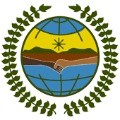Peace Agreements, and Human Rights
 I attended a side event of the UN Permanent Forum on Indigenous Issues, which pertained to Article 30 of the UN Declaration on the Rights of Indigenous Peoples: an article addressing military activities on indigenous land. The event focused specifically on the Chittagong Hill Tracts of Bangladesh, home to over half a million indigenous peoples of varying linguistic, tribal, and racial backgrounds.
I attended a side event of the UN Permanent Forum on Indigenous Issues, which pertained to Article 30 of the UN Declaration on the Rights of Indigenous Peoples: an article addressing military activities on indigenous land. The event focused specifically on the Chittagong Hill Tracts of Bangladesh, home to over half a million indigenous peoples of varying linguistic, tribal, and racial backgrounds.
Shapan Adnan, of the International CHT Commission, told us that before the 1997 CHT Peace Accord, the Bangladeshi government brought 400,000 non-indigenous people into the CHT in response to regional violence and insurgency. During the twenty years of war that followed, the resultant population in the CHT consisted of military and government-loyal settlers who had seized indigenous land with government approval. The 1997 Peace Accord called for military forces to withdraw, and for indigenous lands to be returned to their rightful owners, neither of which has happened to a large extent. The Land Commission, founded at the 1997 Peace Accord, remained largely inactive until 2008, when it was appointed a Bangladeshi-biased chairperson, according to Adnan. He said, “For the hill people, while there is no war, there is also no peace, as there is no institution for remedial action, and an uneasy truce situation.”
Hurst Hannum, professor at the Tufts Fletcher School of Law and Diplomacy and newest member of the CHT commission, called our attention to the divisive language of the 2011 amendments to the Constitution of Bangladesh, in which we read, “the State shall take steps to protect and develop the unique local culture and tradition of the tribes, minor races, ethnic sects and communities.” Dr. Hannum asked whether we can see the phrase “minor races” as anything but demeaning, noting that “land seizures, settlers on indigenous land, and human rights violations speak more loudly than the stated willingness to take steps to protect so-called tribes and minor races.”
Describing Bangladesh, the Presbyterian Church (U.S.A.) notes that, “Christians make up less than one-half of 1 percent of the population…[which is largely Muslim], and often suffer from discrimination in the Muslim-dominated government…many Christians are from non-Bengali tribal backgrounds…and suffer from ethnic discrimination as well.” Learn about how the Presbyterian Church (U.S.A.) partners with brothers and sisters in Christ in Bangladesh.